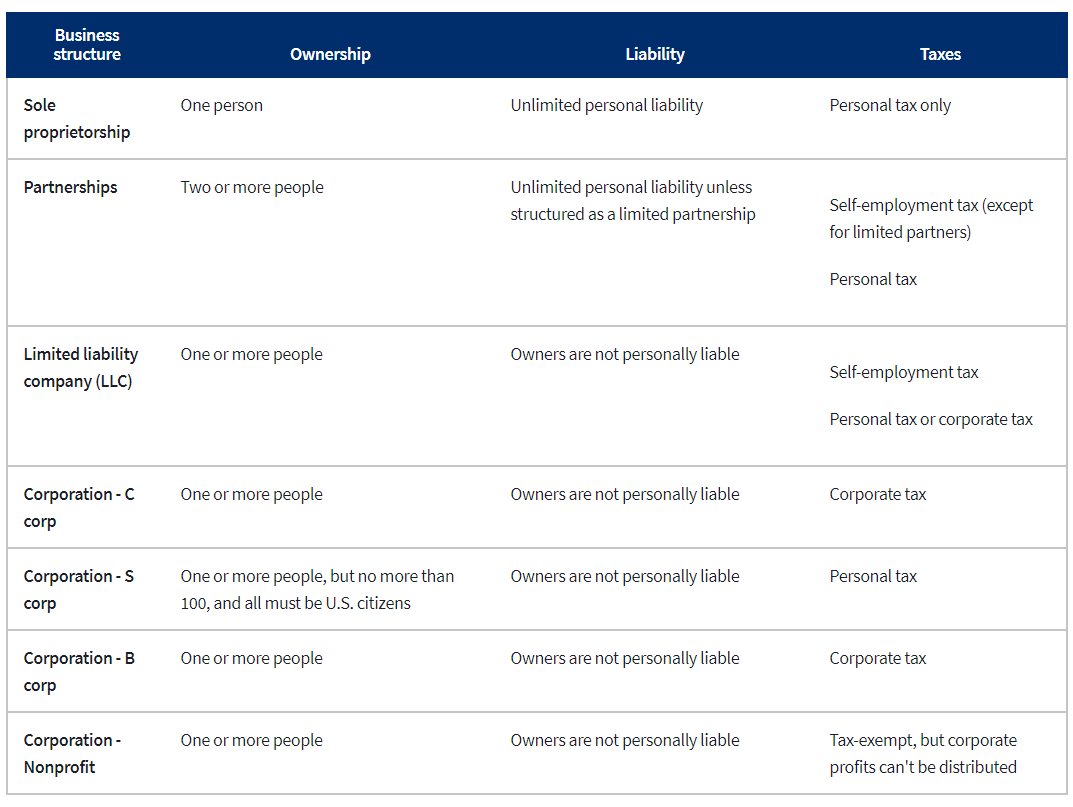By: Coleman Jackson, Attorney and Certified Public Accountant
July 01, 2021

As you set out to begin your next public contract, one of your first tasks will be to evaluate the choices in structuring your business. Entity selection is important, as each type of entity carries its own set of legal and tax attributes. Before you consult with your CPA firm and legal counsel, you will need to give some thought to the following questions:
- How many owners will we have?
- Who will our owners be?
- What type of potential liability will exist for the ownership team?
- How will the business be financed?
- How do we want our business profits to be taxed?
- What is our exit strategy?
These are just a few of the questions that should be addressed before you begin to acquire startup capital, initial loan funding or seek teaming opportunities. Choosing the right entity structure for your construction company, for example, depends on many aspects and factors of your business. One of the main concerns for any business is personal liability. Although no entity structure can guarantee exemption from all liabilities, there are ways to protect yourself and your business, based on your company’s needs. In other words, your business structure affects how much you pay in taxes, your ability to raise money, the paperwork you need to file, and your personal liability.

You’ll need to choose a business structure before you register your business with the state. Most businesses will also need to get a tax ID number and file for the appropriate licenses and permits.
Choose carefully. While you may convert to a different business structure in the future, there may be restrictions based on your location. This could also result in tax consequences and unintended dissolution, among other complications.
Consulting with business counselors, attorneys, and accountants can prove helpful.
Generally, there are five main entity types: sole proprietorships, limited liability companies (LLCs), partnerships, S corporations, and C corporations. The most common of these for construction contractors are LLCs, partnerships, S corporations, and C corporations. Below are brief descriptions of these four main types as well as some advantages and disadvantages of each.

Partnerships
In order to have a partnership, you must have more than one owner. Unlike proprietorships, they are separate legal entities apart from their owners. There is no tax rate schedule for partnerships, as they typically do not pay any tax at the entity level, and in a general partnership the income or loss is passed through to the owners on a Schedule K-1. Each general partner has responsibility for the debts of the partnership. Of course you may have both general and limited partnership interests.
Partnerships have a lot of flexibility when it comes to income allocation. Income or loss allocation does not always follow the ownership of the business, as partnership taxation provides some opportunities for special allocations of income, provided the allocation carries ‘economic substance’ within the terms of the tax code. Partners overseeing specific divisions, contracts or tasks could be rewarded with specific allocations of their department’s financial performance.
A partnership is a pass-through entity owned by two or more persons. Partnerships offer the ability to grow the company with each partner assuming less risk than they would as the sole owner of the business. However, there is a loss of control for partners in a partnership since all partners must approve each business decision. A few things to consider before electing the partnership status are:
Advantages:
- Flexibility in ownership structure
- Collaboration on contracts and moral support from additional owners
- Increased ability to raise capital
- No double taxation
- Reduced financial burden on partners
- New 20% deduction for qualified business income possible (owner tax return)
Disadvantages:
- Potential disagreements amongst partners
- Sharing profits with others
- Applicability of self-employment tax
- Taxed on the individual level (potential highest rate = 37%)
- Lack of limited liability (unless operating as a LLC)

C-corporation
A C-corporation is an independent legal entity that exists separately from the company’s owners. Shareholders (the owners), a board of directors, and officers have control over the corporation, although one person in a C-corp can fulfill all of these roles, so it is possible to create a corporation where you’re in charge of everything.
This being said, with this type of business entity, there are many more regulations and tax laws that the company must comply with. Methods for incorporating, fees, and required forms vary by state.
Advantages:
- Owners (shareholders) don’t have personal liability for the business’s debts and liabilities.
- C-corporations are eligible for more tax deductions than any other type of business.
- C-corporation owners pay lower self-employment taxes.
- You have the ability to offer stock options, which can help you raise money in the future.
- No restriction on ownership
- Separate legal entity from owners
- 2018 flat tax rate of 21%
Disadvantages:
- Income faces double taxation
- Tax burden is potentially greater than pass-through entities
- No personal tax credits
- More expensive to create than sole proprietorships and partnerships (the filing fees required to incorporate a business range from $100 to $500 based on which state you’re in).
- C-corporations face double taxation: The company pays taxes on the corporate tax return, and then shareholders pay taxes on dividends on their personal tax returns.
- Owners cannot deduct business losses on their personal tax returns.
- There are a lot of formalities that corporations have to meet, such as holding board and shareholder meetings, keeping meeting minutes, and creating by laws.
Most small businesses pass over C-corps when deciding how to structure their business, but they can be a good choice as your business grows and you find yourself needing more legal protections. The biggest benefit of a C-corp is limited liability. If someone sues the business, they are limited to taking business assets to cover the judgment—they can’t come after your home, car, or other personal assets.
This being said, corporations are a mixed bag from a tax perspective — there are more tax deductions and fewer self-employment taxes, but there’s the possibility of double taxation if you plan to offer dividends. Owners who invest profits back into the business as opposed to taking dividends are more likely to benefit under a corporate structure.

S-corporation
An S-corporation preserves the limited liability that comes with a C-corporation but is a pass-through entity for tax purposes. This means that, similar to a sole prop or partnership, an S-corp’s profits and losses pass through to the owners’ personal tax returns. There’s no corporate-level taxation for an S-corp.
Advantages:
- Owners (shareholders) don’t have personal liability for the business’s debts and liabilities.
- No corporate taxation and no double taxation: An S-corp is a pass-through entity, so the government taxes it much like a sole proprietorship or partnership.
- Limited liability
- No double taxation
- New 20% deduction for qualified business income possible (owner tax return)
Disadvantages:
- Like C-corporations, S-corporations are more expensive to create than both sole proprietorships and partnerships (requires registration with the state).
- There are more limits on issuing stock with S-corps vs. C-corps.
- Taxed on the individual level (potential highest rate = 37%)
- Limits long-term growth plan
You still need to comply with corporate formalities, like creating bylaws and holding board and shareholder meetings.
In order to organize as an S-corporation or convert your business to an S-corporation, you have to file IRS form 2553. S-corporations can be a good choice for businesses that want a corporate structure but like the tax flexibility of a sole proprietorship or partnership.

LLCs
LLCs have grown in popularity over the recent years because they generally afford the owners with many of the positive attributes of the both the partnership and corporate structures. They are generally flow through entities taxed as partnerships, however, they may make elections moving forward to be taxed as a C Corporation or an S Corporation. The ability to ‘morph’ the LLC into whatever you desire it be for tax purposes had made this an increasing entity selection for business owners.
Regardless of your entity selection, please be sure to consult your professional advisors to insure that your business is protected in case any of its owners desire to exit the business, sell their interest, retire, or die unexpectedly. Think of your teaming opportunities with that next prime or subcontractor and how structure could play an important role in your organization’s success.
Limited liability companies are a popular choice among construction contractors because they provide protection to an owner’s personal assets. All customer or creditor claims against the company are limited to the assets owned by the business. Additional advantages and disadvantages of the LLC structure are:
Advantages:
- No restriction on who may own an LLC (dependent on tax structure chosen)
- Flexibility to choose between a partnership or S corporation tax structure
- LLCs may also be considered single-member LLCs
Disadvantages:
- Taxed on the individual level (potential highest rate = 37%)
- Not all states recognize LLCs
- LLC statutes are not uniform in every state
As you can see, sole props and GPs are light on liability protections, so they expose you to greater legal risk if someone sues your business. But, taxation is simple when you have a sole prop or GP, and you don’t have nearly as many government regulations to comply with. That means more time to do what you love—running your business.
This being said, the simplicity of a sole prop or a partnership makes either of these business entity structures a good starting point for freelancers and consultants, particularly if the industry they’re in brings little legal risk with it.
If your business is in a more litigious industry, on the other hand, such as food service, child care, or professional services, that’s a strong reason to create an LLC or corporation right off the bat. And regardless of industry, as your business grows and more dollars are at stake, that can be the ideal time to “graduate” to an LLC or corporation. What works for a freelancer or hobbyist likely won’t work for someone who is trying to hire employees, bring on additional owners, or expand.
Although it’s certainly possible to change business structures at any point in your business’s journey, some changes are easier to make than others. For instance, it’s relatively simple to convert from a sole prop or partnership to an LLC by filing the right paperwork with your state.
Converting to a corporation, however, is more difficult, particularly if you plan to issue stock. Additionally, converting from a C-corp to an S-corp can bring unexpected taxes. Therefore, before changing your business structure, you’ll want to think through the possible advantages and potential problems associated with doing so and consult a business attorney for professional advice.
Moreover, you’ll want to keep in mind that the IRS places certain limits and deadlines on how often you can change your business’s entity type. Plus, it’s also worth remembering that different government tax plans can change how business entity types are taxed, and this may contribute to how taxes factor into your ultimate decision.
There is a lot of literature available to assist you with this decision, but the experience and guidance of your professional advisors is most helpful in avoiding unforeseen outcomes
All in all, you’ll want to keep the following in mind when deciding among the different types of business entities:
Sole proprietorships and general partnerships are good “starter” entities.
As your business grows and generates more income, you might consider registering as an LLC or corporation.
Think through the pros and cons of each business entity type in terms of legal protection, tax treatment, and government requirements.
Compare the general traits of these business structures, but remember that ownership rules, liability, taxes, and filing requirements for each business structure can vary by state.

https://www.sba.gov/business-guide/launch-your-business/choose-business-structure
Work with a business lawyer and accountant to get specific help for your business.
Ultimately, although there’s not a single best business entity choice for all small businesses, by referring to this guide and consulting legal or financial professionals, you’ll be able to determine which type is right for your business.
If you have any questions on setting up your entity or considerations to make for switching from one entity type to another, please contact us.
This law blog is written by the Taxation | Litigation | Immigration Law Firm of Coleman Jackson, P.C. for educational purposes; it does not create an attorney-client relationship between this law firm and its reader. You should consult with legal counsel in your geographical area with respect to any legal issues impacting you, your family or business.
Coleman Jackson, P.C. | Taxation, Litigation, Immigration Law Firm | English (214) 599-0431 | Spanish (214) 599-0432| Portuguese (214) 272-3100










